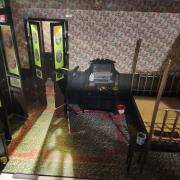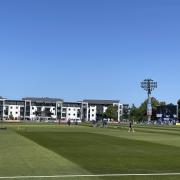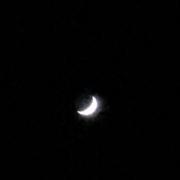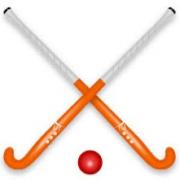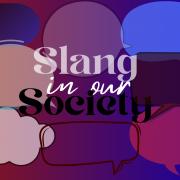
Jack’s importance to the novel
Jack is seen as a leader figure however; throughout the novel it has been proven that he wants to be leader so that he can please his own ego. He craves power for himself and does not take responsibility for others in the way Ralph does. This is showed in multiple scenarios; one is when Jack blows the conch for the first time to call an assembly. He conforms to the ‘law but intends to use it for his advantage. When questioned, he shouts, ‘Quiet!’ and ‘You Listen’ which are signs that debate will not be permitted. These quotes show that Jack leads through imitation and through harshness. Jack leads with an iron fist and uses his actions to speak for him rather than talking civilized unlike Ralph who just shows his leadership through his words. Jack informs his hunters that he’s ‘Going to be chief’ and he becomes an authorial leader, making it clear that those who disobey him will be punished. At the start of the novel Jack is head chorister and sees himself as a natural leader this is also foreshadowing Jack’s need to be a leader and his need to be in charge. Jack also uses the fear to his own advantage; therefore, he offers the pig’s head as a gift. The possible existence of a beast gives a new importance to Jack’s hunters and now he has got a reason to step up and overthrow Ralph. Golding shows the ways the power changes on the island through fear. Whilst Ralph, with his civilized and smart logical way of thinking tries to encourage the boys to think sensibly about the beast and to release that it doesn't exist. Also, Jack plays on the fact he can earn leadership through him provided a desirable food for the rest of the boys, he uses this to his advantage.
Jack represents the world of hunting, tactics and dictatorship, Jack enters the novel as the authoritarian man-of-power who enters most scenes like a tempered sergeant. Jack is the hot-headed, egomaniacal boy, who represents the novel’s prime representative of the instinct of savagery and violence. From the start of the story, he claims to hunt for meat. His argument is a filmy pretext for the fact that he needs blood. He wants to share the pleasure of conquest and killing more than eating meat as he recalls, “He has outwitted a living thing, imposed their will upon it, and taken away its life like a satisfying drink”. Furthermore, Jack’s behavior is directed by his desire to hunt and he doesn't want to or need to plan and has already forgotten the meaning of rescue and his need of power. Jack’s addictive urge to kill can be shown in chapter 3 when he had ‘compulsion to track down and kill that was swallowing him up’ this shows he represents desire to kill ;the use of the noun ‘compulsion’ suggests that Jack is portrayed as at the mercy of his desires and another quote to show this is ‘liberated from civilized feelings by the mask’ this emphasizes how Jack is not able to resist the temptations to be the hunter. This add to the layers that build up Jacks character; the fact he is at the mercy of his desires shows us that he is just like any other teenage boy who is tempted by objects however, this quote also emphasizes the fact that Jack exhibits a primal instinct to hunt and kill. Even at the beginning Jack exhibits harshness and rudeness this is shown in the quote ‘Your talking too much,’ said Jack Merridew ‘Shut up fatty. 'The use of ‘Shut up’ highlights Jack’s impatience with words and how he prefers action over thought this foreshadows his latter hunter nature. When Ralph is elected leader in the beginning, Jack is far from happy and spends the rest of the novel trying to win back the power he has lost. In the end Jack is a vicious dictator who rules with an iron fist."
Moreover, the political allegory is clearly the most explicitly linked to power and how Jacks wants the power another reason why Jack is important to the novel is through the themes that he represents he represents evil and power along with chaos and savagery and finally he represents dictatorship through his leadership; which I have previously talked about the struggle in power between Ralph and Jack , however, depicting the struggle between Ralph and democracy on one side and Jacks totalitarianism on the other side. Over time the boys gradually move away from order and good sense and they all slowly turn to savagery this is prominent in Chapter 8 and 9 where Jack along with the boys are chanting and he is has become a tribe making a strong connection to his animalistic natures and he is losing his link to civilization. Jack uses the fear to control the boys and therefore grant himself more power. Golding ultimately shows fear winning over logic when Simon bringing the boys the truth about the beast is killed in the frenzy. The use of the three-syllable rhythmic chant ‘Kill the beast! Cut his throat! Spill his blood!’ this shows how the boys especially have given to savagery and using simplistic language and simplistic ideas and the boys have started supporting Jack as a leader more and more. Furthermore, Jack’s language compared to Ralph is very harsh and rude a good example of this is when he addresses Piggy ‘You shut up, you fat slug !’His aggressive behavior reflexes his personality and Golding has purposefully made Jack’s language ruder than Piggy’s as it lets us the reader know Jack is a very harsh character and his use of harsher language links to all themes I have mentioned above. The sense of power has given him a newly sinister quality behind his paint. He abuses his power by his arbitrary beating of Wilfred, violent stealing of fire, cruel robbing of spec from Piggy, forceful enlisting of Sam and Eric and delirious killing of Piggy. The sense of power has given him a newly sinister quality behind his paint. He abuses his power by his arbitrary beating of Wilfred, violent stealing of fire, cruel robbing of spec from Piggy, forceful enlisting of Sam and Eric and delirious killing of Piggy. What’s more, to satisfy his need of power. The boys ranged themselves in rows on the grass before him...and pointed at them with the spear. "Who's going to join my tribe? “Jack is connected to the words 'power' and 'authority'. He tells the boys abruptly what to do...and they do it without question. His mask and spear are symbols of his dictatorship.
Jack is the novel’s antagonist because he stands in the way of Ralph’s goals, parliamentary ruling in the island and building a fire in hopes of rescue. Jack, Ralph and Simon are linked to the holy trinity and these 3 leaders all play important roles in different ways. Jack and Ralphs ‘love and hate’ has been an ongoing theme in the novel. Golding uses Jack as a link for the fact that he is tries to get across no-ne is born evil but the can chose to be evil and personally this is is why I think that Golding has written Jack, so he can link this character to Hitler as this novel was written in WW2.Jack plays an important role in the novel as he is a complex character with many layers and he is used to symbolize a Hitler like human , but this does not mean that this is for certain Jack is still a teenage boy and at the end of the day he is still trying to find himself but he is making many impulsive bad decisions like Hitler. The novel uses many war imageries such as in chapter 1 the use of the phrase ‘an atom bomb’ is reminding us that this novel is written in the time of the war. The use of Jack’s knife is also another example of weapon imagery linking to the war. In Lord of the Flies, author William Golding uses the knife to symbolize military power and the savagery that comes with the need to kill. Through this savage environment, Golding makes a statement about the nature of humans, at what kind of power we fall back on when we are left to our own devices in nature. One way of co-existing leads to salvation, the other, chaos. The knife is a symbol for the boys' desire for power and ever-increasing antagonism. In Golding's brilliant mind, the knife is a symbol of corruption, the use of intimidation to control the populace, and of violence and military power- all traits commonly found in a stereotypical "savage" society. The symbolism of the knife is displayed by the thoughts and actions of Jack, who is the chief of the group of boys that make up the hunter pack. As Jack and the others on the island begin to adopt a more brutal way of life, the knife is used as a tool of violence, to the effect of creating a way to obtain power, and control through fear and intimidation over the other boys. It also ties into Golding's view of human nature by the reasoning that only a truly corrupt society could use something designed only to hurt and kill. The fact that the knife is with Jack gives Jack an importance and the fact that Ralph hasn’t forcefully taken the knife suggest that Ralph believes Jack can’t do that much damage.









